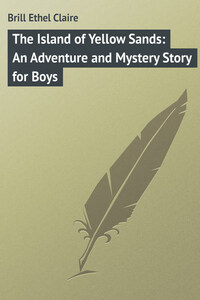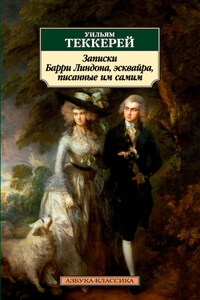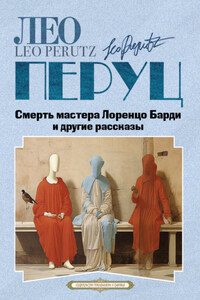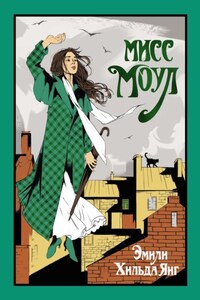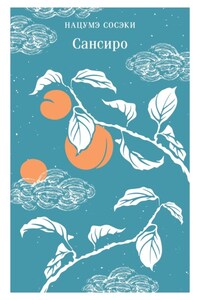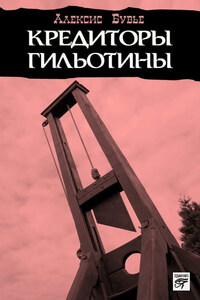I
THE ISLE WITH THE GOLDEN SANDS
“My white brother speaks wisdom.”
The two boys were startled. The red-haired one, who had been lying on the ground, scrambled to his feet. The other, a wiry dark-skinned lad, sprang from his seat on a spruce log and seized the newcomer by the hand.
“Etienne, Nangotook,” he cried, “how came you here?”
“Even as you, little brother, over those great waters.” The Indian made a gesture towards the lake, which gleamed between the long point and the island that protected the bay of the Grande Portage from wind and waves. “I have listened to the words of this other white brother and found them good,” he added, with a grave glance at the surprised face of the red-haired boy. “He would deal justly with my people as with his own.”
“That would he, even as I would,” the dark lad exclaimed. “He is my good friend and comrade Ronald Kennedy of Montreal. And this, Ronald,” he added, completing the introduction, “is Nangotook, the Flame, called by the good fathers Etienne, friend of my father and of my own childhood.”
The greetings over, the Indian seated himself on the log beside Jean. “And will my little brother be a trader to steal the wits of the Indian and take his furs away from him?” he asked.
“Not I, Nangotook, unless I can be an honest one and give the trapper and hunter fair return for his pelts. Though,” Jean added more thoughtfully, “I am eager indeed to gain gold, and I know not how it is to be done except through trade with the savages.”
“Gold,” said the Ojibwa thoughtfully. “White men would do all things for gold. Why is my brother Jean in need of it? What could gold give him better than this?” He stretched out his arm with a sweeping gesture that embraced the water, still glowing with the soft light of the afterglow, and the rocky wooded shores.
“It would give back the land and the house on the beautiful St. Lawrence, the house where my father was born,” Jean answered, his face softening. “You know the place, Etienne, and you know how my father loves it. And now, if he had but the money, he could buy it back, but it is a great sum and he has it not.”
The Indian nodded in silence. After a moment, fixing his dark eyes on Jean’s, he said slowly, “How then if some man should lead my brother and his comrade with hair like the maple leaf before it falls, to a place where they can gather much gold and load with it many canoes?”
The two boys stared at him.
“You are making game of us,” cried Jean indignantly.
“Nay, little brother. I will tell you the story.” And the Indian settled himself more comfortably on the log.
“Among my people,” he began, “a tale is told of an island lying far out in the wide waters. On that island is a broad beach of sand, a beach unlike any other, for the sand is of a yellow more bright and shining than the birch leaf when the frost has touched it.”
“Gold?” queried Jean. “I have heard that there is gold on the shores and islands of this lake, but no white man has found it.”
“As the story is told among my people,” Nangotook continued, without heeding the interruption, “many summers ago three braves were driven by the wind on the shore of that island. They loaded their canoe with the sand, and started to paddle away. Then a man, as tall as a pine tree and with a face like the lightning in its fierceness, appeared on the sands and commanded them to bring back the gold. They did not heed, and he waded into the water, and, growing greater and more terrible at every step, gained on them swiftly. Then they were sick with fear, and agreed to return to the land and empty out the yellow sand they had stolen. When not one grain remained in the canoe, the manito of the sands allowed them to go.”
“That is the story of the Island of Yellow Sands,” said Jean, as Nangotook paused. “I recall it now. I heard it in childhood. Many have sought that island, but none has found it. Do you mean that you know where it is and can lead us there?”
The Ojibwa nodded. “My grandfather saw the island once many summers ago, when a storm had driven him far out in the lake. But the wind was wrong and the waves were rolling high on the beach, so he could not land. He was close enough to see the sands gleaming in the sunlight. He knew them for the same as the piece of yellow metal a medicine man of his clan had taken from a Sioux prisoner. The Sioux had bought it from one whose people lived far towards the setting sun. That metal was what the white men call gold, and are always seeking. I heard my grandfather tell the tale while the winter snow whistled around the lodge.”
“And he told you how to reach the island?” asked Ronald. “Why did he not go back and bring away some of the gold?”
“He had no need of the yellow sands, and he feared the manito that was said to guard them.”
“And do not you fear the manito?” Jean questioned.
The Indian shook his head. “I am a Christian,” he said proudly, “and the good fathers have taught me that I need fear no evil spirits, if I remain true in my heart to the great Father above. Then too,” he added in a lower voice, “I have a mighty charm,” his hand touched the breast of his deerskin tunic, “which protects me from all the spirits of the waters and the islands.”
